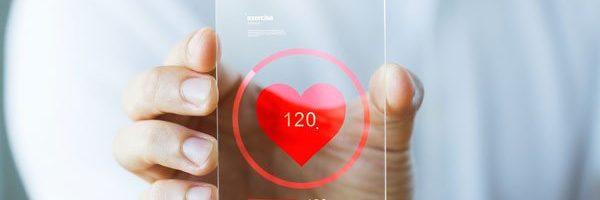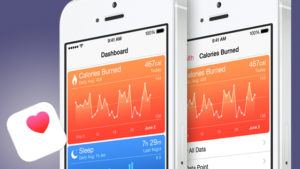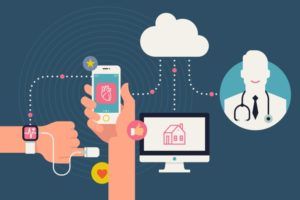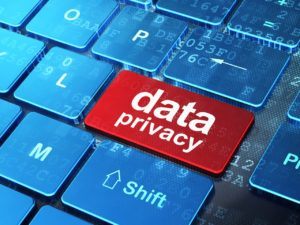Apple: Digital Healthcare Innovation

How Apple is leading Digital Healthcare initiative to make the world healthier and happier?
Word count : 799
Global tech giants, including Apple, are driving digital healthcare wave in purpose of helping people in the world be healthier and happier. The idea is simple: Your smartphone and wearables can be your personal doctors which can collect, analyze, and manage your health. Sounds terrific, especially considering the extremely high U.S healthcare cost ($9,024 per capita) [1], and long wait time for hospital reservation! But the aftermath is not so simple – i.e. No doctor and hospital anymore? – and consumer’s critical privacy in health information.
More importantly, now Apple needs more advanced ‘Digital Transformation’ than before: Big data analysis (Healthcare).
I would like to concentrate on 5 key topics in this blog:
- Apple’s operation model for Digital Healthcare initiative
- Apple’s value proposition of each model
- Expansion opportunities of Apple’s Digital Healthcare initiative
- Huge impact and risk of Digital Healthcare wave (Medical / Insurance industry)
- The Next Step
I. Apple’s operation model for Digital Healthcare
1. Health Kit
Apple Health kit SDK is creating ecosystem for enhancement of the fitness in individual user’s everyday life. Healthkit collects and consolidates health data from iPhone, Apple Watch, and third-party apps that Apple users use. There are four distinct categories for health data collection: Activity, Sleep, Mindfulness, and Nutrition. [2] These are major areas that people should keep track of daily to keep fit, and Apple helps users to ‘prevent’ (not cure yet!) from disease by offering real-time snapshot of those 4 key critical health indicators.
2. Research Kit
Research Kit is an open-ended medical research platform driven by Apple. The biggest difference from the Healthkit is that Research Kit aims to accumulate big health data for diverse clinical tests for human races rather than users themselves. Apple already built partnership with Mayo clinic [3], Stanford University health center, and Massachusetts general hospital to conduct medical research for extensive health data collected from Research kit. The impact and progress is huge. For instance, more than 6,000 users already sent personal data for Pakinson disease research and it normally takes 40 years to collect same amount of dataset.
II. Apple’s key Value Proposition
The key value proposition for Health kit is building an integrated ecosystem which can consolidate huge amount of small pieces of data collected from different apps, and transform those to a meaningful health guide to our everyday’s life. To realize this value, Apple creates huge ecosystem and invites key players of other sectors including wearable, medical appliances, and mobile app companies, such as Noom, Runtastic, and Pebble [3].
The key value proposition of the Research Kit is bigger and higher than Health Kit. Research Kit aims to improve people’s health and make the world healthier. Almost 1 Billion iphone has sold worldwide, and the data that can be collected through iphones or Apple watch will be enormous enough to increase the level of medical research.
III. Expansion opportunities of Apple’s Digital Healthcare initiative
Apple is trying to expand its digital healthcare ecosystem by connecting with other industry leading players. Apple reached an agreement on sharing and co-analyzing more than 50 million people’s health information (coded) with medical device companies including Medtronics and J&J, and IBM Watson division. Huge synergies are expected: Apple can reinforce its B2B business targeting medical industry and gain application fees. IBM Watson can establish more sophisticated PADMIS(patient administration information system), and keep expand into the medical industry.
IV. Huge impact and risk to other industries
1. Medical Industry : Mixed Reaction
– Small and Medium sized hospitals : Hostile
The biggest victims of digital healthcare wave are small-mid sized hospitals. Intuitively, if people rely more on their mobile doctor(smartphone) and become healthier, the number of average patients will decrease hitting hospital’s top line. Maybe some of hospitals go bankruptcies, and some are already finding new ways for survival: tele-medicine, M&A, and specialization.
– Mega medical institutions : Silent welcoming
Unlike our intuition, large cap medical institutions such as Mayo clinic, MGH, were pretty positive about the digital healthcare wave, because they have very different business/profit structure. Unlike small hospitals, most of revenue/profit of mega hospitals comes from two segments: critical disease curement (i.e cancer) and specialized medical research, not normal patients.
2. Life insurance institutions : More than welcoming and eager to invest
Insurance companies like Aetna, Signa, views digital healthcare as a perfect opportunity to lower consumer’s insurance claim amount [5]. Those are very proactive to partner with Apple or google to enroll own health management program and try to change consumer’s lifestyle healthier.
V. The Next Step
Apple’s digital healthcare initiative has strong potential to make people stay healthier at much lower cost. However, to mitigate possible risk and turmoil from it, Apple should put consumer’s privacy first and consider carefully about the negative impact of exisiting medical industry, as a leader.
[1] World bank, Health Expenditure per capita (2016)
[2] Bloomberg Technology Article (2016)
[3] Mayo Clinic Press Release (2014)
[4] MIT Technology Review (2016)
[5] CNN Money Article (2016)






Thank you for the article. Apple clearly have a tremendous platform upon which they can look to really go about changing peoples’ health. However, at present, I feel that their approach has been somewhat fragmented, and not particularly impactful. In my opinion, the key catalyst is going to be wearable medical devices which can interact with one’s iPhone. A blood sugar monitor which could beep whenever your glucose level is not optimal, or a EKG monitor which could call the ambulance as soon as it detects a heart attack, would really revolutionize healthcare. I have no doubts that such solutions are only a matter of time, and I hope that Apple remain at the forefront when this digital revolution of healthcare monitoring occurs.
Hi Christian, thanks for the post about Apple’s digital initiative in the healthcare field. I do believe the mobile health will have great potential, as the digitalization can help healthcare improve its efficiency and reduce cost. I like Apple’s idea of Research Kit, since I believe the big data collected from users and collaboration with large hospitals will have a great potential to make a tangible impact for the research of certain diseases. However, I have a strong concern about wearable devices and Apple’s Health Kit, as I don’t believe the data measured by such device can be valuable to monitor and improve one’s health. I personally think this can only be a tool to track one’s daily life but can’t provide valuable clinical data to track one’s health situation. With the fast changing technology, I hope in the near future, a smartphone or wearable device can accurately capture data like ECG, blood sugar, blood pressure, etc.
Dear Ting, thank you so much for your interest and sharing your thoughts. I understand your concern about Apples’s health kit, but the beauty of this platform is combining and integrating trivial small health data (like you mentioned) and transform it to meaningful health data and recommendation for the fitness. I think what happens here is 1+1+1+1+1+1 is not always 5 but 20 and 30, when you combine piece of data and make synergie. Thank you again and happy to talk about this more.
Christian, thank you for this interesting post. Apple’s involvement with health has been fascinating to watch because it grew so fast and has reached such a wide audience through their iPhones.
I think the implications of Research Kit for hospitals and research foundations is enormous. Just like IBM Watson’s capacity to read and cipher all medical studies out there is revolutionizing diagnosis, I think being able to collect as much data on people as Apple has would mean we can expedite research and development like we’ve never seen before.
A couple concerns I do have are: 1. Will users ever start feeling uncomfortable about constantly sharing their data about their bodies with Apple and whomever Apple sells the data to? 2. If Apple has the data and can sell it to whoever pays the big price for the data, can the “smaller guys” with less capital and access to data compete in disrupting healthcare?
Dear Brittany, thank you so much for your comment and question. I am very happy and motivated about the fact that lots of people showed huge interest in my blog post. To answer your question, Apple doesn’t sell people’s health data. They argue that Apple is trying to do this project to increase human’s health and they want to put efforts to be a part of that project. To prove that, they also code that info to transform as a token. Hope this helps, and happy to talk about this more.
Thanks Christian. Quick question on the research kit and the sharing of data with leading healthcare institutions. Is apple partnering with them and providing the data for free? Or do they have a profit arrangement on the rights to the outcome of that research? How do they capture value for the tremendously valuable data they are capturing in their ecosystem?
Hi Haibo, thank you for the question. As I mentioned earlier, Apple pursues this project to increase human’s health and they want to put efforts to be a part of that project. However, Apple clearly capture values in this project. They can build strategic alliance with diverse medical partners such as Mayo clinic and learn the advanced way to analyze huge health data, which they will need in the future. Thank you for your interest and let’s talk more!
Thanks for this Christian. I fully agree with your concerns about user data protection and privacy. Undoubtedly many smartphone users are now more comfortable than ever with the idea that their personal data is a commodity to be exchanged for goods and services. However, I wonder whether a data privacy catastrophe like that relatively recent iCloud photo hack could undermine customers’ willingness to share highly personal medical data in the future. I would be interested to know what operational steps Apple is taking to ensure that its data collection, transmission and identity protection initiatives can avoid such a scenario.
Christian, this was very interesting to read! The Research Kit initiative was new information to me. I’m surprised that medical providers are worried that the Health Kit will lead to fewer patient visits. The Health Care statistics don’t provide enough information on a person’s health to replace a doctor. Additionally, the average person probably has a hard time interpreting what the statistics means for their health. I think medical providers should use Health Kit as a tool to help their patients achieve better health. For example, if a patient isn’t sleeping or exercising enough, doctors can provide goals that the patients can track using their Health Kit.
Thank you, Christian. This is a really interesting article. I was wondering where you got the data regarding the revenue from small hospitals? Did you run across anything in your research that suggested people who are more involved in their own healthcare (via apps) may actually visit the Dr. more for well checks and sick visits? I know when I rotated through a small private pediatric practice that the majority of the firms revenues came from well-check visits which were completely reimbursed by insurers.
Hello, thank you for your interest and question. Asides from researching public data, we also did a in-person research and survey with doctors in local community hospitals and we could find they are pretty worried about declining numbers of patients’ visit to the local hospitals due to the mobile health platform, even though they can be reimbursed by insures, the declining numbers actually hurts their top line and revenue. Thank you for your interest!!
Christian very interesting post! I think the platform here as you mentioned holds an immense amount of value. I still don’t see the data coming of consumer wearables as credible or used in clinical decision making. I would ask the physicians out there what it would take to use this data. I will assume apple will need to publish some studies showing the equivalency of data coming from these wearables against equipment used in doctors offices.
Additionally what will society to start using these devices less for fun and more for serious health improvement. I think one of the big hurdles Apple will have to deal with is submitting this device to the FDA once it is used in the clinical setting.
I would be curious to know what your thoughts are on Samsung’s strategy on healthcare in comparison to that of Apple.
Hi Christian, thank you for this post! It is really interesting learning more about how big tech companies are moving into the healthcare space. My concern with Apple providing these snapshots of the 4 metrics (Activity, Sleep, Mindfulness, and Nutrition) to help prevent them from disease. Unfortunately, I am not sure that there is sufficient research in the correlation of disease with these metrics, and this may be providing users with false hope. Also, has Apple thought of incorporating specific information, such as family health history or allergies to make this information more relevant to a particular user?
Hello, thank you for your interest and questions. I recommend you to see this project from a long term perspective and it is still it is in the initial stage. I tried to find the answer for your second question, but there was nothing in public especially for the family’s health information, but I will post it if I find it later on. Thank you so much!
Great Post Christian and really interesting!! many of the question I had in my mind while I was reading your article regarding the quality of the data collected from our every day interaction devices have been brought up in previous posts. I do agree that there is tremendous value to the initiative and that the upside of it could bring great benefits for a large portion of the population. As you were doing your research did you come across any information on how apple was intending to address all the incumbent in the healthcare industry, for example small hospitals that -as you stated- are hostile to this initiative?
Thanks for this really interesting post Christian! I think the applications for this technology are endless as the sensors in our phones improve and the data quality improves as a result. My main concern is how to protect consumers if Apple shares this data with health insurance companies as I could see insurance companies being incentivized to increase premiums preemptively if they start to see signs of potential health issues which may be genetic and outside of the patient’s control. So appropriate regulation will be necessary as this industry evolves to ensure the insurance companies’ and patients’ incentives remain aligned.